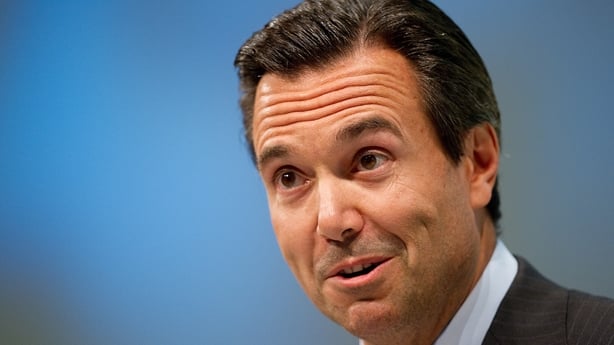Lloyds Banking Group today reported underlying profits in line with expectations, keeping first quarter revenues steady and cutting bad debts despite the challenging economic environment.
Lloyds is Britain's largest mortgage lender.
It reported underlying pre-tax profit of £2.1 billion in the first quarter of this year, compared with a profit of £2.19 billion a year earlier.
That was in line with the £1.99 billion average estimate of three analysts surveyed by Reuters.
Chief executive Antonio Horta-Osório is cutting thousands of jobs to streamline the business and support a progressive dividend policy, in the final phase of a recovery plan following a £20.5 billion bailout during the 2007-09 financial crisis.
The UK's largest retail bank said total income fell 1% to £4.4 billion, as higher revenue from its retail bank were offset by lower income in its insurance division.
Impairments dropped 6% to £149m despite Britain's economy slowing at the start of this year.
"These results demonstrate the strength of our differentiated, simple, low risk business model and reflect our ability to actively respond to the challenging operating environment," Horta-Osório said in the statement.

Lloyds did not provision any money to repay customers mis-sold loan insurance this quarter, an indication that a scandal that has plagued the bank and sharply reduced profits over recent years is starting to recede.
The bank has been forced to set aside about £16 billion since the financial crisis to repay customers who took out policies to protect borrowers against sickness or redundancy, but were often ineligible to claim.
Lloyds said its net interest margin, the difference between the interest it gets from borrowers and what it pays savers, a key revenue driver, rose to 2.74%, due to higher rates for deposits and lower funding costs.
It took a £790m charge in this quarter for buying back bonds that it says says over the longer term will help lower its funding costs.
UK finance minister George Osborne is looking to sell the last remaining government-held shares in Lloyds over the next year after a discounted sale to the general public was postponed earlier this year due to turmoil in global financial markets.
Banking and political sources expect the sale of Lloyds' shares to resume after the UK referendum on membership of the European Union in June, concluding with a larger offer to retail investors.
The UK government has reduced its holding from 43% to less than 10%, raising over £16 billion.

